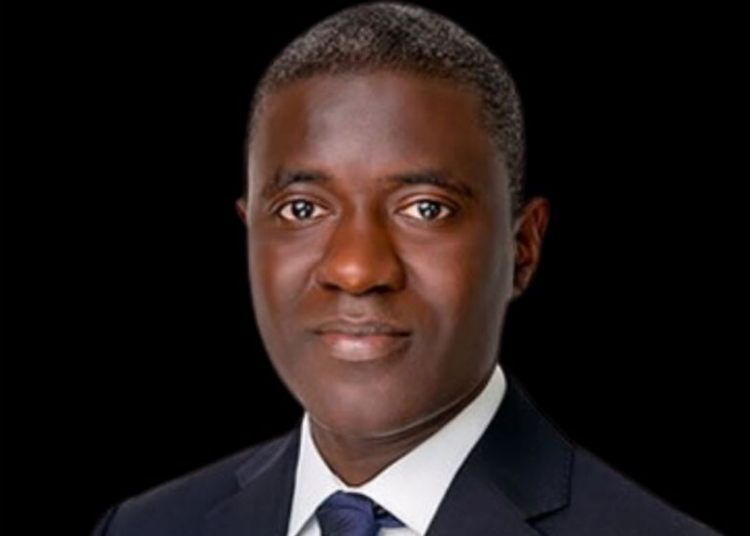The National Identity Number (NIN) registration process, along with the NIN-SIM linkage, is undoubtedly stressful. Numerous Nigerians have expressed their frustration regarding the lengthy lines at registration centers, the inclement weather, and the losses they have incurred from forgoing their means of subsistence for extended periods of time, spent at registration centres.
Recall that the compulsory linkage began in December 2020, when the federal government, through the Nigerian Communications Commission (NCC), directed telcos to block calls from unregistered and unlinked NINs.
Despites the fact that the federal government has extended the deadline for NIN-SIM linkage for several times, it is sad to note that, over 40 million SIMs still remain unlinked to NIN and the reason for that is not far-fetched, stakeholders averred.
To stakeholders, if government can make the process seamless, by addressing the technical challenges and logistics constraints associated with the linkage process, it will alleviate the burden on citizens and ensure that everyone has equal access to communication services.
Why NIN-SIM linkage policy
While government is putting all necessary structure in place to ensure smooth and seamless NIN registration, and subsequently NIN-SIM linkage, the minister of Communications, Innovation and Digital Economy, Dr. Bosun Tijani, has argued that, though as stressful and hectic the process could be, its benefit outweigh the stress.
Recall that the reasons why the federal government came up with the policy almost four years ago, was to improve and enhance national security, accelerating economic planning and development, connect all the records about an individual’s identity into the National Identity Database, mitigate identity fraud and other online crimes, establish customer identity that will be useful for Know Your Customers (KYC) initiatives and to validate SIM card registration records and allow it to be used as a digital identity.
According to the minister of Communications, Innovation and Digital Economy, Dr. Bosun Tijani although the process of NIN registration and linkage has become very hectic, Nigerians must endure it and do the needful to enable government maintain high level security across the country.
“The process of NIN registration and linkage has turned out to be a painful exercise, but the benefits are numerous to the citizens and to the Nigerian economy. It will help government to provide digital services to the people, and it will offer citizens the opportunity to access such digital services that will be provided by government. It will also help government to maintain high level of security across the country.
Government had since realised that most databases are in silos and operate independent of each other, but with the successful linkage of NIN with registered SIM cards, government will be able to provide a single database of all Nigerians, from where information could be easily accessed and processed in real time.”
The minister therefore appealed to Nigerians who have not been able to link all their mobile lines to their NIN, and those whose SIM cards were barred from making and receiving calls, to exercise some patience and ensure full compliance of NIN registration and linkage for national security.
In the same vein, the executive vice chairman, NCC, Dr. Aminu Maida the move by the federal government to mandate the linking of phone numbers was to enhance security measures in the country, adding that the directive aimed to streamline the identification process and improve accountability for individuals associated with specific phone lines.
“By limiting the registration of a maximum of four SIMs to a single NIN, the government seeks to facilitate easier identification of line owners, enabling effective monitoring and matching of these numbers.
“The restriction is intended to combat crime by ensuring that individuals are accountable for activities linked to their registered lines, thereby tightening security measures against criminal activities such as kidnapping, banditry, and terrorism,” Maida explained.
The EVC also mentioned that the directive would help make data-driven decisions that will help the industry, while assuring subscribers that, “You are going to see a change in the way we make decisions; we are going to be very data-driven. All our decisions are going to be backed up by data as much as possible. We want to reduce subjectiveness and make the right decisions that will improve the industry.
“We intend to hold our licensees accountable for all services. After all, consumers pay for the services, and they expect the service to be at a certain level or point, so we will be holding our licensees accountable to ensure they deliver on their obligations to their licenses.
“We need to put smiles back on the faces of consumers. NCC is clear on this: we need to protect the interests of consumers. They remain number one because that is where you extract values from. Yet, the interests of licensed operators will also be protected while we put eyes on their activities to see the level of compliance.”
Step-by-step process
Maida alluded that NIN-SIM Linkage is a process of connecting NIN to phone number to authenticate and protect one’s identity.
Explaining further, Maida said, “To link your NIN to your SIM, a subscriber needs to submit his/her NIN to their respective Service Provider to complete the process of NIN-SIM linkage. For subscribers who do not have the NIN), they can obtain theirs from National Identification Management Commission (NIMC) Enrolment Centres or their Service Providers Customer Care Centres, and you need a valid ID Card and BVN for enrolment.
“A subscriber can also link his/her NIN to his/her SIM by sending NIN- 11 digit NIN to 996 or Dial *996* Your 11 Digit NIN# and follow the prompts. A telecoms subscriber can link his/her NIN to as many as 4 mobile phone numbers per Mobile Network.
“One major objective of linking subscribers’ NIN to SIM is to help improve and enhance national security in the country. AS A MATTER OF CRITICAL NATIONAL SECURITY, Telecom Consumers must link their NIN to the SIM. To this end, the Commission has directed all telecommunication operators to bar phone lines of subscribers whose lines are not linked to their NINs on or before February 28, 2024.”
While some subscribers have complained that they are still receiving messages from their service provider despites many attempts of linking their NIN to SIM, the EVC explained that, “We have heard cases of people, after submitting their NIN, are still receiving messages that their line will be barred if they don’t link their SIM to NIN. This is unfortunate. The SIM-NIN linkage started back to 2020. We are now in 2024 and the process is still ongoing.
“If your number has been barred, it is likely that the data you submitted during the biometric process is different from the data you submitted during NIN registration. Simple things like for instance, if you have four names on your SIM registration, but you only put two names during your NIN registration, it will be showing error. Remember, the reason for the SIM-NIN linkage is to match your identity. We want to be sure that Mr A with SIM one, is the same person as Mr A with this NIN. So, most of the cases of barred SIM is because of this error
He appealed to subscribers to go to their mobile operator, to rectify the issue. “In some cases, it is just for you to recapture your biometric, in some cases, you may need to correct your data. Go to your mobile operators. They will tell you the reason and also proffer solution as well.”
Maida however reiterated that, “The harmonization of NIN-SIM is for our collective good as a country. The more we draw closer to the digital economy, the more digital identity becomes very critical.”





